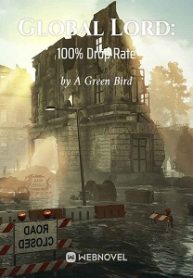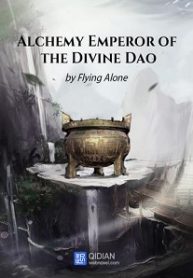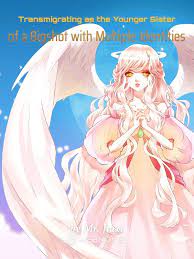Peculiar Soul - Chapter 12: Understanding
Chapter 12: Understanding
The axis/skew model remains a problematic metaphor, not least because metaphors in this field of study have a troublesome way of becoming resilient even if (or perhaps especially if) they are inappropriate. To begin with, it implies that there is a zero point between extremes. Any amount of empirical observation will prove this to be false, or whence the artifex? Neither extreme of that axis may shape material freely, only preserve or destroy what already exists. To create, to change requires balance.
A zero is an absence, I submit that this is not; it contains a unique capacity. Yet I do not have a better solution for this dilemma, because to attempt to supplant the model would leave us with either another similarly-limited metaphor, or with the need to comprehend in full what mysteries we try to approximate. Such mysteries may be unknowable in their complexity – or, perhaps more terrifying, they may be within our grasp. I have seen the fruit borne of our limited comprehension. I do not know if man could survive if it were made sweeter still.
– Leire Gabarain, Annals of the Sixteenth Star, 685.
It was a short walk from the harbormaster’s to the waiting ship. Michael found himself staring like a bumpkin at the bustle of fish and cargo being processed around him; for all that he had lived in a port city before he had never had the opportunity to walk amid the unwashed and smelly machine of Calmharbor’s maritime industry. Maiburg was tiny by comparison, but the port was no less busy for its size.
Fish were everywhere. This late in the day the city’s fleet was bringing back its catch, and though some of it went fresh to the market the vast majority were being frozen as quickly as the lucigens could work. The stuttering lights of the Freezers flickered from nearly every slip; Michael’s vision swam with spots from looking at it. Jeorg glanced back at Michael with his lips pressed into a thin, disapproving line.
“Don’t stare at the Freezers,” he said. “Not good for your eyes. Keep your distance, too.”
Michael pulled his eyes away from the fishermen. “Why?” he asked, trying to focus on Jeorg’s face through the afterimages.
The old man paused, then shook his head. “Long explanation,” he said. “Leire should have some books on it. Remind me when we’re in Mendian. For now, keep away.”
Puzzled, Michael nodded and shifted his gaze away from the docks. To their other side was the fish market, where most of the fresh catch was headed. Merchants called out over the arrayed bounty of fish at anyone who walked near. An old man with a scabbed face and one clouded eye leered at Michael as they passed, brandishing a fish as long as his arm.
Michael shuddered and kept walking. Jeorg seemed unfazed by the crowd, the overpowering smell and chaos of the port. Just as in the forest, he threaded a path between and around obstacles that Michael struggled to follow. It was less that the crowd parted for him than that its density was no issue, as though he were following a painted line only he could see – which, Michael reflected, might hew fairly close to the truth.
In short order they drew close to the designated berth. Jeorg veered out of the flow of traffic and stood in a calmer nook by some waiting cargo, taking a moment to look at their prospective transport before they walked closer.
The ship waiting at dock seventeen was unremarkable – a middling size, with a boxy hull and soot-marked stacks that were nevertheless clean of rust and excess barnacles. There was no sailor minding the access; Jeorg walked onto the deck and turned towards the cluttered wheelhouse at the ship’s rear. As they approached Michael could hear the tinny squeal of a wireless telegraph blaring through the wheelhouse’s open door.
A man was inside, hunched over his desk with his ear close to the radio while one hand transcribed the dot code on a slip of paper. Jeorg stopped to wait. The man leaned closer to the wireless as a low hiss of static built over top of the beeping. It grew louder with each passing second until all they could hear from the speaker was a wretched squeal of noise. The man cursed, giving the radio an irritated smack before silencing it.
“Always goes to shit when the fish come in,” he groused, turning to glare at Jeorg. “What do you want?”
Now that he had turned, Michael could see his face clearly. The man wore a full beard, neatly trimmed and shot-through with grey. If he had hair atop his head it was hidden under his cap. His skin spoke of unrelenting sun and wind, tanned and leathery enough to put most good boots to shame.
Jeorg met his eyes and inclined his head slightly. “Need passage to Arenga,” he said. “Heard you were headed that way.”
“This is a freighter,” the man said. “You want passenger ships, they’re west along the shore.”
“Just need a ship,” Jeorg said, raising his eyebrow. “Doesn’t have to be fancy. Someone said you might have a spare cabin.”
“I might,” the man allowed. He gave Jeorg a considering glance. “There’s a reason you’re not asking down at the passenger dock. Folks like you are trouble. I don’t like trouble on my ship.”
Jeorg gave the man a flinty smile and patted his pocket. It clinked. “One hundred crowns,” he said. “Half now, half in Arenga. For the inconvenience.”
The captain raised a bushy eyebrow. “Some trouble is harder than others,” he said. “One-fifty, paid up front.”
Michael restrained himself from making a noise. For one hundred and fifty crowns he could have bought the horseless carriage his father had coveted, with money to spare for a driver. Jeorg only smiled.
“Seventy-five now,” Jeorg countered. “Fifty in Arenga – and priority passage through the strait locks.”
Both of the captain’s eyebrows went up. “You got strings to pull in Mendian, old man? Get me docking rights on the north side of the strait and you can go for free. Ghar’s bones, you can have my cabin.”
Jeorg laughed and shook his head. “That would be easier,” he said. “We’re not that connected. I have an old single-use code that should let us jump the queue, that’s all. Save us a few days waiting for a spot.”
“Bah,” the captain said, narrowing his eyes and giving them both a long look. Finally, he stuck out his hand. “Otto Kaupf,” he said. “Captain of the Helga.”
“Jeorg.” The two men shook hands and Jeorg retrieved a small bag of coins from his pocket, handing it over without further comment. The captain dumped it on his desk; there were seven fat gold coins and five smaller silver. Otto stared at it for a few moments before smiling and shaking his head.
“I’m going to regret meeting you two,” he chuckled. His eyes shifted to Michael. “What’s your name, son?”
Michael answered, omitting his surname as Jeorg had. Otto didn’t remark on it. Instead, he walked brusquely past them and led the way down to a cramped cabin with a pair of hammocks strung up on the wall, and a mat below that for an impromptu third bunk. It was barely more than a closet, but it was clean and dry.
“We’ll be putting out this evening,” Otto said. “Once the light fades and the Ember steamers clear the bay. We should make open ocean by morning. Two more days from there to the strait, then two more to Arenga – if your code works. Otherwise four.” He gave his beard an irritable scratch. “Stay out of my crew’s way. Meals are whenever the bell rings.”
Otto turned and walked back above-deck without a backward glance.
“Charming,” Michael murmured. “You trust him?”
Jeorg snorted. “So long as nobody offers to pay him more than we did,” he said. “He’s not our friend, but he seems pragmatic. Those sorts don’t cheat – usually.”
“So, what now?” Michael asked, poking his head into the cabin. “We just wait?”
“Best to keep our heads down.” Jeorg brushed past Michael and settled into the lower of the two hammocks. “We can stray onto the deck once we’re out of port. Too many eyes here, and ears.”
Michael nodded and clambered up to the upper hammock with some difficulty, scowling when he caught Jeorg laughing at his graceless ascent. Once he was settled, however, he found it surprisingly comfortable. The days of walking had left him feeling footsore, and the previous night’s sleep had been rough. Michael stretched as much as the tight space allowed before closing his eyes to sleep.

A lurching movement of the boat jolted Michael awake, sending the hammock swinging into the bulkhead and nearly upending him onto Jeorg. He looked around the small cabin wide-eyed, forgetting for a sleep-fogged moment where he was and how he had come to be there.
“Relax,” Jeorg grunted. “It’s evening. We’re just setting out.”
Michael settled back into his hammock, trying to steady his breathing. “Ah,” he said. “Odd to set out at night.”
“The waters of the Iron Bay are calm,” Jeorg said. “Well-mapped, lots of lighthouses. Better to sail at night – avoid the Ember traffic, use the light for ocean travel. If he times it right, we’ll arrive at the Rock of the Strait in daylight as well.” He stretched his arms, and Michael caught the hint of a smile in his voice as he spoke. “It’ll be nice to see it again.”
Michael said nothing, listening to the distant noise of the engine as it thrummed its heartbeat through the ship. They were leaving Ardalt, possibly forever. It seemed as though the departure from his homeland should be more momentous in his mind than it was. It might strike him later, he supposed – or perhaps the concept of Ardalt itself had loomed larger in his estimation than it truly deserved.
His father had sneered at patriotism, supporting the mechanisms of government for the benefits it brought him. His tutors had approached it as a philosophical or moral duty, a cold realization of one’s obligation to the society that raised him. The omnipresent posters and banners trumpeted the country’s supremacy with a near-religious zeal – not mere support for the country, but love.
If there was any land Michael held love for, it was the one that he had left days ago; its sole other inhabitant was in the cabin with him. He stretched back out in the hammock, seeking to recapture the sleep that had deserted him when the ship moved. Jeorg’s words echoed in his mind as he drifted off – they are all with me, wherever I go. Perhaps his nation was now himself and a cryptic, terse old man. Perhaps that was enough.
Jeorg was already awake when he next opened his eyes. Michael sat upright, promptly knocking his head on the low ceiling. He scowled and looked down at Jeorg. “Trouble?” he asked.
“No, no trouble,” Jeorg said. “It’s morning. We should be out of the bay soon, if we’re not already. Thought I might go up and take a look.”
Michael nodded – he hadn’t been bothered by the confines of the cabin, but now that Jeorg had set his mind thinking about the sea and sky he was suddenly quite eager to be free of them. The tang of salt air had wormed its way down into the interior of the boat, a clean smell rather distinct from the muddy and vegetal scent of the bay’s water. They emerged to a cloudless dawn that clung tenuously to shades of pink and orange.
The Iron Bay was large enough to spill past the horizon from most points on its shore, barring the narrows west of Calmharbor, so the sight of seemingly endless water was hardly new to Michael. But in the bay, beyond that hazy arc was just more of Ardalt – in fact, when he had chanced to look out from Calmharbor it had been the port of Maiburg that lay on the opposite shore. A tiny slice of the world compared to the vastness of the Squall Sea that now lay to their north.
Men had ventured into it, of course. Some had even made their way wholly around, departing to the east and arriving on Saf’s western coast. They brought back stories of isolated atolls and vast shallows where men built cities of rafts – but little more than that amid the endless heaving waves. That was what lay beyond the horizon now.
“What are you grinning about?” Jeorg chuckled. He flicked his fingers dismissively at the ocean. “You’ll be sick of the sight before we’re through. Promise you that.”
Another laugh came from behind them, low and gravelly; Michael turned to see Otto gazing appreciatively into the distance. “Sick of it?” he said. “Who could grow tired of this view? Maybe your young friend will learn to love it, and find the sturdy ground to be stifling.”
“You’re cheerful,” Michael noted. Indeed, the captain seemed ten years younger than he had in the wheelhouse. “No issues on the trip up the bay, I take it?”
“Smooth and sweet as Mendiko wine,” Otto confirmed. “But the bay is always friendly. Stray farther from land and the water goes foreign. Wild.” He grinned through his beard. “Never you fear, though. We’ll sail on sweet water from here to Arenga.”
Jeorg turned and lifted an eyebrow. “Coming in south of the Rock?” he asked.
“Aye,” Otto replied, giving him an appraising look. “That’s the smooth route up. Something about it not to your liking?”
There was a pause. Jeorg glanced at Michael, then back to Otto. “Lot of traffic on the southerly lane these days,” he said mildly. “Military ships, between Stahm and Leik. People talk about a captain who makes it from Maiburg to Arenga in four days. Too far south, and there’ll be inspections. Surprise checks. The sort of thing that’ll see us arriving substantially later.”
Otto stared at Jeorg for a second, then swore. Still, there was a certain giddiness to his manner that shaded his irritable tone into something more anticipatory. “I knew I’d regret taking you two,” he chuckled. “North it is. Just a taste of wild. And if the sea leaves us with a few scratches and bites, we’ll know she enjoyed it too.”
He flashed a toothy grin at the both of them and walked back to the wheelhouse, rumbling a self-amused laugh. Michael watched him leave, then turned to Jeorg. “Well, he’s friendlier today,” he commented.
Jeorg snorted. “Risk is change,” he said. “Change is risk. Men who seek risk for risk’s sake are men who long for a change. A poor way to live, and a poorer way to live long.” He scratched his chin, fingers grating across a thin growth of stubble there. “Never fear risk, or change. But – only seek it deliberately. For things that matter. Risk without thinking, and you might not enjoy the change that comes.”
There was an odd tone in Jeorg’s voice, but before Michael could respond his thoughts were led astray by the ringing of a bell from aft. Both men turned to look, and the somber mood was broken by the scent of salt-meat stew. It was surprisingly good, for ship’s fare, and left him in high spirits the rest of the day. He stayed above-deck, even as Jeorg retired below for a post-meal nap. The feel of the wind and sun on his face was much-preferable in his opinion to the stifling air of the cabin, and despite Jeorg’s warning the view remained enthralling.
Not without consequence, of course; when Jeorg emerged later to smoke his pipe he was hard-pressed to restrain his laughter at Michael’s reddened, sunburnt face. “Keep this up and you’ll have a face like Otto’s,” he teased. “I’ve hidden my face before, but never disguised as a boiled crab.”
Michael grumbled, embarrassment adding to the red on his face as he thought of trying to talk his way into Mendian with a burnt, peeling face – but Jeorg reached out and laid a finger against the bare skin of his neck. A cool wave spread over his cheekbones, the wind blowing over-sharp and clear for a moment – and then it was done. Michael patted his face, wide-eyed.
“You can – ah, of course you can,” Michael said, his voice dropping to a low whisper. “I’m so used to thinking of the Life axis as scattered, disparate. It’s a switch to think of all the disciplines as branches of the same tree.”
Jeorg chuckled. “I’m not even a very good anatomens,” he said. “The skin, the muscles – they’re simpler, and account for most injuries. Harder to mend an organ, and only the especially talented or arrogant believe they can heal the brain.” He looked over the railing, off into the open expanse of the ocean. “Power never removes limits. It only shifts them, makes them tenuous and easily overlooked. Important to know what you can’t do – or shouldn’t.”
“That hasn’t been a problem for me,” Michael muttered. “My limits are rather glaring.”
Jeorg smiled. “For now,” he said.
The first day passed, as did the second. True to his word, Otto steered the Helga north well before they ran out of Ardan coastline to follow, taking them wide of the shipping lanes and, crucially, of Braun Island. Michael watched the dwindling remnants of Ardalt until they were lost in the haze, and wondered if he would ever see it again – but only for a moment. There was nothing much he could do to address that question, and staring after it would only see him burnt again.
He spent most of that second day below-deck in the hammock, going up occasionally to stretch his legs or when summoned by the atonal clamor of the cook’s bell. It was calm enough despite Otto’s innuendos to the contrary. Only a bit of chop disturbed him during the day, and at night it faded into a gentle rocking that had Michael’s hammock drifting back and forth in a soothing sway. He had heard nothing but horror stories from those who had taken long ocean voyages, but whether by dint of his circumstances or his strange apprenticeship to Jeorg he was finding it rather enjoyable.
On the third morning, Jeorg woke him even earlier than usual. The old man was nearly-giddy as he awoke, and gave Michael a smile broad enough to brighten the dim cabin.
“We’ll be coming up on the Rock of the Strait,” he said. “Haven’t seen it for longer than you’ve been alive, and then some.”
Michael answered with a sleepily-incoherent grunt. “I’ve never seen it, even in pictures,” he muttered. “Is it big?”
Jeorg laughed. “Oh, no,” he said. “Boring. Little more than a lighthouse and bird droppings. But once we’re north-west of the Rock, we’re in the strait. That means Mendiko territory, and safe sailing all the way to Arenga. You think you’ve lived in civilization until now, but you’ve never set foot in it. Today we’ll catch our first glimpse.”
The old man’s excitement was contagious enough to banish the lingering shadows of sleep from Michael’s mind, and soon both of them were up on the deck to watch the first light of dawn break to starboard. There was no sign of the Rock, yet.
“Fitting that we should come across it at dawn,” Jeorg said. “Mendian is the land of the sun, the home of the Star.”
Michael frowned and glanced at the sunrise. “You make it sound like they worship Stellar. I didn’t think they were like the Safid, that way.”
“No, not worship,” Jeorg said. “Respect, is a better word, as they respect all souls. Light, though – energy. People are taught to think of Form as the fundamental axis in Ardalt, but in Mendian they recognize that Light was first. There is a certain purity to it.” He smiled and shook his head. “I will keep talking, if I let myself. I should let you see it fresh.”
“I should think I know what light looks like,” Michael muttered. As if in counterpoint to his complaint, the first rays of the sun peered over the horizon to limn the world in coppery fire, glaring off the haze that clung tight over the water – aside from one spot, in the distance, where a mote of darkness hung against the sea.
Michael spotted it first, squinting against the sudden reflected brightness. “I think I see the Rock,” he said, tapping Jeorg on the shoulder. “Look, there, just beside the bow.”
“Odd,” Jeorg said, turning to look. “I had thought our angle-” He broke off, staring into the distance. The mote of darkness sat stubbornly against the haze, seeming to swell unnaturally fast. Jeorg studied it for a moment more – then turned and walked toward the wheelhouse. His face was grim, and Michael followed him at a worried half-run.
“Otto!” Jeorg called, pulling open the door to reveal their bleary-eyed captain. “That’s an Ember out there.”
The captain sat bolt-upright, the fatigue vanishing from his face. “It’s not five minutes from sunrise,” he protested. “An Ember shouldn’t be out this far, not so early.”
Jeorg grabbed Otto’s battered spyglass from the console, ignoring the captain’s abortive protest. He peered through it for a moment, then handed it back. “See for yourself,” he said. “There are two of them.”
Otto snatched it up and looked for only seconds before he flung it back to the table, cursing. “I knew I’d fucking regret it,” he spat. “Only way they’d be out here this early is if they were waiting. Only ship taking this route is us.”
Wordlessly, Michael picked up the spyglass to see for himself. It took him a moment to locate the two boats against the still-dark sea, but when he did they were painfully obvious – slim hulls, built for speed, with a bent orb of pure black obscuring their stern. The ship’s Ember, gathering the sun’s rays for the boiler. Michael stared for a moment, then lowered the spyglass as a numb sort of paralysis began to spread through him.
“…can’t outrun an Ember,” Otto snarled, jabbing his finger angrily at the map. “We’re still too far from the Rock, and they’re between us and it. Their boilers will be up before we can do more than turn, and then they’ll have us.” He pushed back from the table with a frustrated growl, glaring at Michael. “What in Ghar’s fucking disgrace did you two do, that they’ve got Embers waiting at the Rock?”
Jeorg gave a small, bitter laugh. “Nothing of note,” he said. He straightened up, and Michael saw a light in his eyes that bore none of the warm tones of dawn. “Captain, it may be best if you and your men are below-deck when they approach.” He gave Otto a level look, and for the first time the captain looked uncertain.
“It’s my ship,” he said stubbornly. “I’ll be damned before I hide in the hold.”
There was a grease pencil lying on the map table, which Jeorg grabbed. He bent back a corner of the map and began to write on it. “Izarrarentzat,” he said, pronouncing the word with a practiced cadence. “Bizitzaren zuhaitza.” He tore the corner he had written on, thrusting it towards Otto. “The passcode. In case things go poorly.”
Otto took it, looking bewildered. “Listen,” he said. “I’m not going to just-”
The noise of the wind and waves died around them as Jeorg straightened up. Michael felt the mirrors gathering around in their shining tempest. The air grew crystalline and heavy, all lines bending towards the man standing at their center.
“Otto,” Jeorg said gently. “Please go below.”
The captain did not argue further, stumbling back to leave Jeorg and Michael alone in the wheelhouse. Jeorg exhaled slowly, and the pressure around him dropped – but did not disappear, leaving the air tense and electric. “We should go outside for this,” Jeorg said, following Otto out into the morning air. “Setting is important. Hard to get your mind to think outside of the room it’s in, or inside of a room it isn’t.”
Michael followed wordlessly, and the two walked toward the bow of the ship. The black dots of the Ember ships were noticeably closer now. Jeorg paused at the ship’s railing, staring at the approaching ships with the sun lighting his back. He closed his eyes and began to breathe deeply.
The world drifted into utter silence. The creaking of the ship faded, the noise of the water disappeared. They had stopped moving. The ocean became an unbroken plane of glass around them, and Michael saw the world doubled, the sky stretching out to infinity both above and below.
Jeorg spoke – not with the thunderous command Michael had heard in the shop. His voice was slow and golden in the morning calm, whispers that echoed from every facet of the world. “Metal glides above the hungry water,” he said, stretching out his hand. “It will cease because I will it so.”
The stillness fractured into a million shards. The motes of darkness winked out, and at the extremity of his vision Michael saw bodies hurled forward off the suddenly immobile craft. Still, no sound carried into Jeorg’s domain. The mirrors flexed and rippled across the surface of the water, racing toward the attacking ships.
The pressure grew until Michael had trouble drawing breath, his lungs fighting against the sudden unreality of the air around him. Jeorg alone remained implacable, untouchable. Slowly, he curled his fingers into a fist. “Now become an instrument of slaughter,” he said, his voice a razored whisper. “Drag the ships upon you down-”
There was a small, wet noise, unnaturally loud in the stillness. The noise of the wind came rushing back all at once, the water smacking against the hull of the ship. A thunderclap rang out above the sea. Jeorg staggered back and stumbled against the railing.
Deep red, nearly black in the dim light, was spreading across the front of Jeorg’s shirt. Michael took a step forward, wide-eyed – and collapsed to the deck as blinding pain spasmed through his chest. It tore through him like lightning, a twin to the pain of his father’s whip and blades grinding away at the core of his being.
There was an impact near him. Jeorg had fallen to the deck, his blood spreading slowly out over the metal, dripping from the folds of his shirt. His eyes met Michael’s and flickered with recognition, then amusement, then acceptance.
Then nothing.
Michael saw it begin, just as he had with Leon. All that was Jeorg began to leach from his body, laying bare a light that seared blindingly through Michael’s being. Panic colored the pain. Blood dripped into more blood, spreading over the metal. Fear. It surged and broke, screaming, shouting, heralding the inevitable void.
It had come for Jeorg. Michael railed against it, hurled epithets that echoed only within the confines of his mind. The void did not care; it could not, as it was only an absence. It opened above Jeorg’s radiant soul and beckoned it upward into the yawning expanse.
He could do nothing but watch. The pain had immobilized him, left him reeling and mindless, barely cognizant of anything but the fact that he was losing Jeorg and that must not happen.
The soul froze. The void froze. And like a sluice of water rushing down over a fire, the pain in Michael’s chest stopped. Something formless shifted within him, and every mote of the world vibrated with a single, wordless question – why?
Michael had no words to answer. His view shifted to Jeorg sitting across the table from him, humming appreciatively at the flavor of a pork chop he had cooked. Michael’s own face, scowling at Jeorg as he laughed and prodded him to answer a question from a different angle. To plowing and sowing with him, hauling the first baskets of fruit from the orchard, hiking in hours of comfortable silence through Jeorg’s woods. The old man’s eyes, over firelight, looking at Michael and seeing beyond what Michael himself saw.
A shudder ran through the core of his being. Another thought coalesced, deeper than words could tell. It spoke of recognition.
It understood.
A tether snapped into being between Michael and the overwhelming radiance of Jeorg’s soul. Pain surged once more, but no longer a hollow pain. It sliced through him, bursting, filling, overwhelming all that he was. The world went white. Michael’s mind slipped away for a time, and when he opened his eyes once more there was a man standing over Jeorg’s body.
He tried to sit up and could not, tried to scream at the man to step away but managed only a faint croaking noise. The man looked at him. He was thin, with a severe face and thinning grey hair. His eyes were an unremarkable brown, but as Michael met them they came alight with an inner fire, a subtle play of color and tone that rendered them fascinating.
The man turned away from Michael to look back at Jeorg, one hand softly coming down to slide the old man’s eyes closed. When he returned his gaze to Michael there were tears on his cheek, though he smiled and moved to kneel beside him.
“Hello,” he said. “You must be Michael.” His voice was high, but clear and resonant. It seemed to reverberate through every corner of Michael’s mind. “That we had to meet on such a day – oh, such a sad day. The best of men has fallen here, and I fear the world shall never be the same.” He let his head drop down, and for a moment silence reclaimed the sea.
“I suppose we must salvage what happiness we can from this tragedy,” the man said at last, looking up. “I’m glad to have finally met you, Michael Baumgart. My name is Josef. Well, that’s what people call me. Sometimes it’s José, or Spark, or just ‘the doctor’ – but ah, I’m rambling. I apologize, today has been difficult in so many ways.” He reached down to lay a hand on Michael’s shoulder, and his touch was seething, electric, thrilling. “But I have this – wonderful feeling about you. Yes, I think that you and I will be the very best of friends.”















